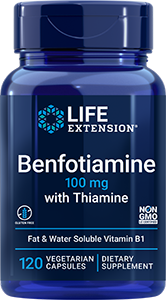Higher vitamin B6 levels associated with lower risk of invasive breast cancer Friday, September 21, 2012. An article published online on August 9, 2012 in the journal Cancer Epidemiology, Biomarkers & Prevention reports the finding of researchers at the University of Hawaii Cancer Center of an association between higher levels of the active form of vitamin B6 known as pyridoxal-5'-phosphate (PLP) and a lower risk of invasive breast cancer in postmenopausal women. The study included 1,412 women enrolled in the Multiethnic Cohort in Hawaii and Southern California prospective study. Seven hundred six invasive breast cancer patients were matched for age, ethnicity, menopausal hormone use and other characteristics with an equal number of women without the disease. Lower plasma PLP levels were observed among obese and overweight women, and smokers. Women whose plasma PLP levels were among the top 25 percent of participants were found to have a 30 percent lower risk of invasive breast cancer in comparison with those whose levels were among the lowest fourth. When the risk was evaluated according to breast cancer type, a significant association was observed between higher PLP levels and estrogen receptor-positive, progesterone receptor-positive, and estrogen receptor- and progesterone receptor-positive tumors. Studies with cell cultures have revealed that high doses of vitamin B6 decreased the growth of tumor cells (including mammary tumor cells), which has been attributed to the modulation of steroid hormone receptor-mediated gene expression. The vitamin also has anti-inflammatory and antioxidant properties that could reduce cancer risk. "This nested case-control study provides new evidence that circulating levels of vitamin B6 may be inversely related to the risk of invasive postmenopausal breast cancer," the authors conclude. "Although the exact mechanism by which vitamin B6 may reduce the risk of breast cancer is presently unknown, laboratory data are overwhelming that this compound is critical to multiple pathways that might inhibit breast carcinogenesis. In conclusion, these results, in combination with information from two other prospective studies, suggest a role for vitamin B6 in the prevention of postmenopausal breast cancer." |
 |
| In a study described online on May 23, 2012 in the Journal of Nutrition, researchers at Tufts University in Boston report a relationship between low levels of plasma pyridoxal-5'-phosphate (PLP), which indicate reduced levels of vitamin B6, with an increase in markers of inflammation. "Low vitamin B6 status, based on plasma concentrations of pyridoxal-5-phosphate, has been identified in inflammatory diseases, including cardiovascular disease, rheumatoid arthritis, inflammatory bowel disease, and diabetes," write Lydia Sakakeeny of Tufts Jean Mayer USDA Human Nutrition Research Center and her colleagues. "Our objective was to examine the association between plasma PLP and multiple markers of inflammation in a community based cohort." The current study included 2229 men and women enrolled in the Framingham Offspring study, who were recruited in 1971 and have undergone periodic examinations thereafter. Blood samples drawn between 1998 and 2001 were analyzed for plasma PLP and 13 markers of inflammation, including C-reactive protein, fibrinogen, interleukin-6, tumor necrosis factor-alpha and other factors. The researchers created inflammation scores based on the values of each inflammatory marker. An inverse relationship was observed between high inflammation scores and low levels of PLP. The authors note that decreased plasma PLP levels may reflect mobilization of PLP into inflammatory sites and that a causative relationship between reduced vitamin B6 levels and inflammation cannot be determined. However, they conclude that "This study in combination with past findings further supports our hypothesis that inflammation is associated with a functional deficiency of vitamin B6." |
|

|  | Benfotiamine with Thiamine, 100 mg, 120 vegetarian capsules
Item #00920 |  | | Benfotiamine, a fat-soluble form of vitamin B1 (thiamine), supports healthy blood sugar metabolism and helps protect the body's tissues against advanced glycation end products and oxidative stress. For example, the enzyme transketolase is critical to blood sugar metabolism. Like many enzymes, transketolase requires a cofactor. In this case, it needs assistance from thiamine. Unfortunately, thiamine is water-soluble, which makes it less available to the interior of the cell. Benfotiamine is fat-soluble and can easily penetrate into the inside of cells. It is also more bioavailable than the water-soluble thiamine. In a landmark study, benfotiamine effectively increased transketolase activity in cell cultures by 300%, compared to a mere 20% for thiamine. This robust activation was sufficient to block three of the four major metabolic pathways leading to blood vessel damage. | | | |
Bone Restore, 150 capsules
Item #01611
 |  | | To overcome the impediments that preclude aging adults from achieving optimal calcium status, Life Extension offers a proprietary comprehensive mineral formula called Bone Restore which has been designed to support healthy bone density and strength. Bone Restore provides 1200 milligrams of elemental calcium from three different forms, along with the critically important nutrients magnesium, boron, zinc, silicon, manganese and vitamin D3 needed for healthy bones. In fact, the boron in this formula, called FruiteX B® OsteoBoron®, is a boron/carbohydrate complex, similar to what is found in fruits and vegetables and is more bioavailable than boron citrate. Scientific research has established the beneficial effects of boron on the strength of bones and joints. | | |












